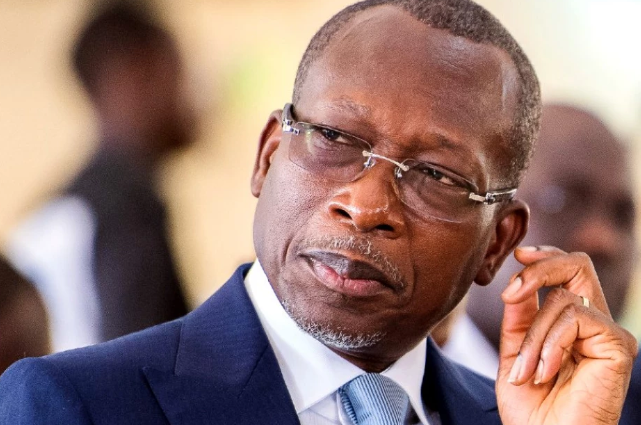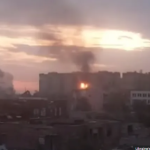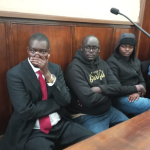Two prominent individuals in Benin, linked to President Patrice Talon, have been remanded in custody pending trial after their arrest last week on suspicion of plotting a coup. Olivier Boko, a businessman and close associate of the president, and Oswald Homeky, a former sports minister, are accused of soliciting the commander of the president’s security, Djimon Dieudonne Tevoedjre, to carry out the coup in the small West African nation.
According to Elonm Mario Metonou, the special prosecutor at Benin’s court for financial crimes and terrorism, the two men “engaged Tevoedjre to carry out a coup by force” on the previous Friday. Their attorney, Ayodele Ahounou, confirmed to AFP on Tuesday that both men have been placed in pre-trial detention and will be sent to Cotonou prison, the country’s economic capital, pending their trial.
The court reported that Homeky was detained around 1:00 a.m. on September 24 while handing over six bags of cash totaling 1.5 billion West African CFA francs (approximately $2.5 million) to Tevoedjre. Boko, often referred to as Talon’s “right-hand man,” was arrested separately in Cotonou.
Boko had recently indicated plans to run for the presidency in 2026, following Talon’s second term, after which he would be ineligible to run again under the constitution. Homeky resigned as sports minister in 2023 after expressing support for Boko’s presidential bid.
Tevoedjre was also arrested last week but has since been released, with charges against him dropped. Boko and Homeky face charges of corruption of a public official, money laundering, and conspiracy against state authority, according to judicial sources. Three others have been charged in connection with the case, with one in custody and two released.
Once seen as a thriving multi-party democracy, Benin has become increasingly authoritarian since Talon came to power in 2016, critics say.
In August, an online critic of the president, Steve Amoussou, was detained and ordered to stand trial later this year on allegations of publishing falsehoods and “inciting rebellion”, judicial sources told AFP.



